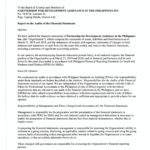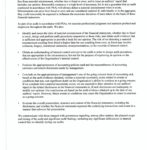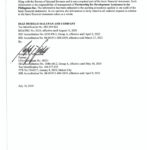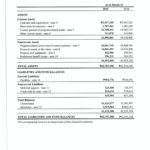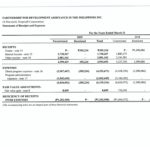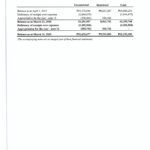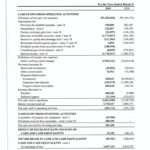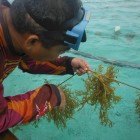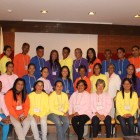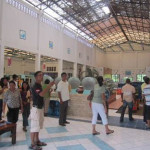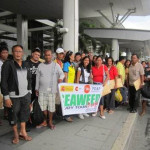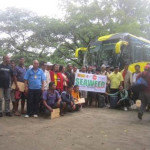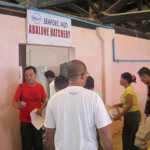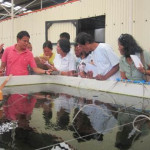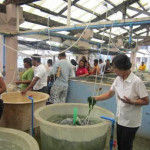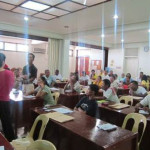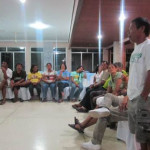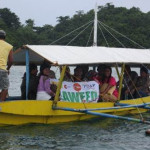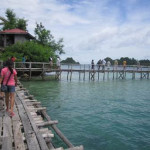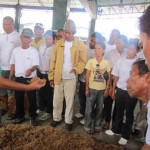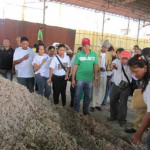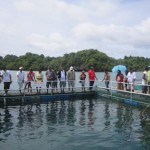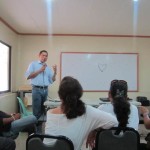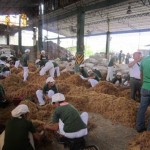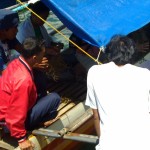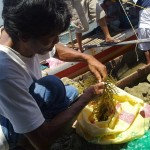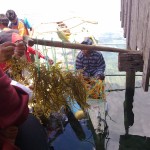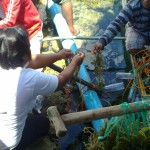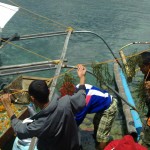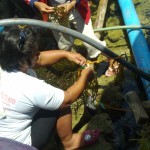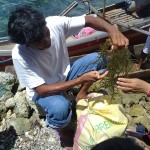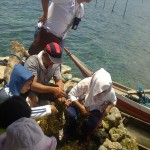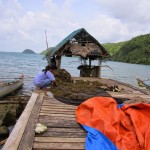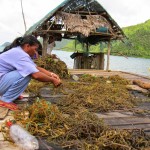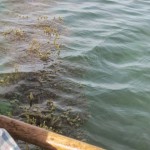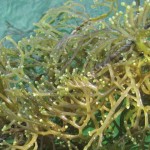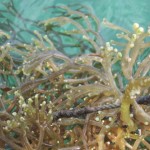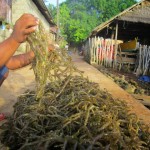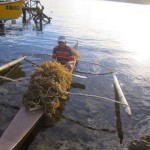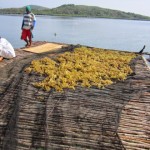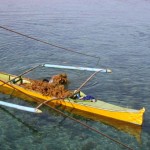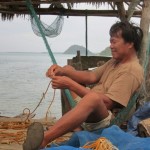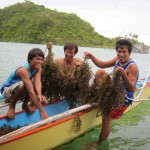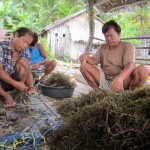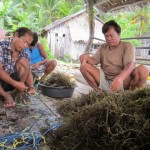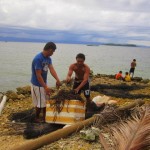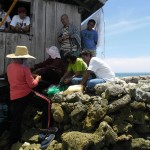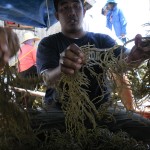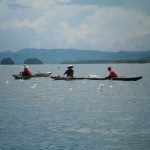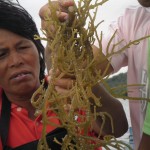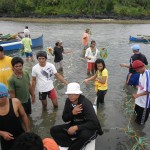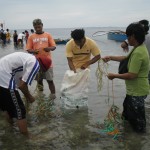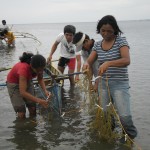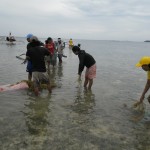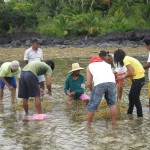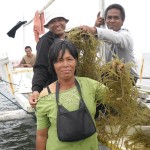Category Archives:Uncategorized
NEWS UPDATE share
“USAID, private sector consortium launch ‘counter trafficking in persons’ project in Cebu”
By Minerva Newman
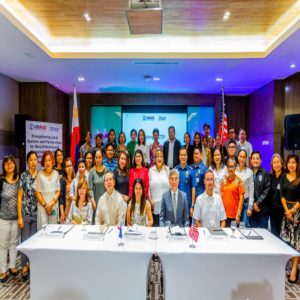
Photo retrieved from https://ph.usembassy.gov/us-government-launches-php-153-million-project-to-support-philippine-efforts-to-counter-human-trafficking/
CEBU CITY – The US Agency for International Development (USAID), in partnership with a local private sector consortium, launched Monday here the “Strength Counter Trafficking in Persons” (CTIP) project that aims to strengthen local systems and partnerships for more effective and sustainable implementation of the CTIP in the Philippines.
US Ambassador Sung Kim said in his keynote message that the US was re-affirming its commitment to end modern day slavery with the launch of the CTIP, adding that more than P150 million ($3 million) have been allocated for the project through the USAID in three years’ time.
Kim said working with the USAID and the Partnership for Development Assistance in the Philippines (PDAP), the US and the Philippine governments will support the Inter-Agency Council Against Trafficking (IACAT), its counterpart councils at the local level, civil society organizations, and the private sector in providing interventions across the four counter-trafficking strategy pillars– prevention, protection, prosecution, and partnerships.
“The US government is among the largest donors in combating trafficking-in-persons worldwide,” Kim said. He added that, in January, US was commemorating the 20th anniversary of the Trafficking Victims Protection Act, which brought the full power and attention of the U.S government to bear in confronting global trafficking. Kim bared that the US has also created the annual congressionally-mandated Trafficking in Persons report, that serves as a call to action for governments around the world to better understand the trafficking within their countries and use best practices to eradicate this global scourge.
He congratulated the Philippines for maintaining the Tier 1 ranking in the report for the fourth consecutive time which acknowledges the Philippines’ strong commitment in addressing this problem.
According to the Ambassador the USAID’s Strength CTIP activity complements the ongoing assistance provided by the US Department of State and the Philippines government’s Child Protection Compact Partnership, as well as with the State Department’s Program to End Modern Slavery project.
“Our assistance through these three programs totals almost P510 million pesos or more than $10 million to combat trafficking in the Philippines,” Kim said, and he was also please to note that the Philippines has proactive civil society working on this important issue.
Kim encouraged the business sector partners to look and find ways to prevent their supply chains from indirectly supporting traffickers. Strong partnerships among stakeholders are critical to achieve results in the areas of protection, prosecution and prevention, he added.
The local private sector consortium in Cebu that will implement the CTIP project includes the partnership among the three civil society organizations namely, Children’s Legal Bureau (CLB), Bidlisiw Foundation, Inc. (BFI) and the Fellowship for Organizing Endeavors (FORGE) that work together to achieve results in protection, prosecution and prevention.
Source: Newman, M. (2020, January 28) USAID, private sector consortium launch ‘counter trafficking in persons’ project in Cebu. Retrieved from https://news.mb.com.ph/2020/01/28/usaid-private-sector-consortium-launch-counter-trafficking-in-persons-project-in-cebu/.
Official release from U.S. Embassy in the Philippines: https://ph.usembassy.gov/us-government-launches-php-153-million-project-to-support-philippine-efforts-to-counter-human-trafficking/
ANNOUNCEMENT share
Please be informed that as of today, one of the telephone lines (i.e. (02) 374-8216) of the Partnership for Development Assistance in the Philippines Inc. (PDAP) is no longer in service. However, you may still reach PDAP at (02) 374-8214 and/or (02) 373-0556. Kindly update your records accordingly. Thank you very much.
PDAP Conducts Seaweeds Farming Technical Training in Caluya, Antique share
The Partnership for Development Assistance in the Philippines Inc. (PDAP) in partnership with the Rotary Club of Manila Metro and Ms. May Lim of PMLJ Trading conducted on-site capacity building interventions on September 4-8, 2016, October 2-6, 2016 and December 4-8, 2016 for thirty (30) seaweed farmers in Brgy. Imba, Caluya, Antique. The capacity building assistance provided helped enhance the skills of the farmers in seaweeds farming which will eventually result in increased productivity and increased income of the beneficiaries.
As designed by PDAP and approved by Rotary Club of Manila Metro, the interventions consisted of three (3) modules; namely, Siting and Planting, Farm Management and Harvest and Post-Harvest. All modules were primarily conducted through hands-on training or on-site coaching and mentoring (i.e. teaching and learning by doing and guiding). All modules were also conducted during the actual timing of implementation by the farmer-participants of the key processes in seaweeds farming so the farmer-participants will better and fully understand and appreciate the farming technology imparted to them. Individual demo farms were installed which the farmer-participants used to apply the knowledge and skills that they have acquired. Regular monitoring and farm assessment were done in between the conduct of the three (3) modules.
Exit meetings involving the seaweed-farmer participants were done after the conduct of each of the three (3) modules where reviews of the modules were done. It was emphasized that to produce good-quality raw dried seaweeds (RDS), seaweed farmers must apply the proper farming techniques they have learned from site selection to the post-harvest stage. With good-quality RDS, it would be easier for the farmers to market their produce in the market.
Farmer-participants also gave their feedback in the exit meetings. The farmers expressed their appreciation to the new seaweed farming technology they acquired by citing some of the improvements they have observed in their respective seaweed farms. Most farmers were optimistic that the new farming technology will contribute in increasing their income from seaweeds farming.
Seaweed Farmer Groups in Antique Attend PMES share
A total of thirty two (32) seaweed farmers (i.e. 16 from Panagatan Islands and 16 from Brgy. Imba both in Caluya, Antique) attended a Pre-Membership Education Seminar (PMES) organized by the Partnership for Development Assistance in the Philippines Inc. (PDAP), in partnership with Ms. May Lim of PMLJ Trading with funding support from the Rotary Club of Manila Metro (RCMM) and the Foundation for a Sustainable Society, Inc. (FSSI) and conducted by the Cooperative Development Authority (CDA)-Region 6 on September 28-29, 2016 at the Best Western Boracay Tropics Resort Hotel in Boracay Island, Malay, Aklan.
The 32 seaweed farmers who participated in the PMES are PDAP’s beneficiaries in its ongoing conduct of seaweeds technical trainings and provision of technical assistance on cooperative development in Caluya, Antique. Part of the cooperative development component is assisting the seaweed farmers in securing their respective registration as cooperatives. One of the requirements of CDA prior to registration is a Certificate of PMES.
Two (2) CDA specialists, Atty. Roumelia Alpasan-Base and Ms. Lanelyn Belicena, conducted the PMES. Five main topics were discussed; namely, a) Reasons for PMES; b) Why Cooperative?; c) Cooperative as Social and Business Enterprise; d) Organization and Management Structures of Cooperatives; and, e) Mandatory Allocation and Distribution of Net Surplus.
After the seminar, Mr. Restie Male, PDAP Programs Manager and Ms. Lim co-facilitated a workshop where both seaweed farmer groups (i.e. Panagatan and Brgy. Imba) decided on what type of cooperative is best suited for them and at the same time discussed the next steps to be done in securing their respective registration.
End-of-Project Report share
Improvement of seaweeds production and farming technology
Prior to the implementation of project activities, community meetings in Barangays Salvacion and Binocyahan were conducted to validate the specific interventions that will help revive the livelihood of households through seaweeds farming. Project interventions were: a) coaching and mentoring on seaweeds farming technology; b) setting up of savings mobilization program; and, c) conduct of capacity building activities on organizational development to strengthen the farmer organizations.
Project implementation started in March 2014 in coordination with the local governments of Basey and Marabut, Western Samar through their respective Office of the Municipal Agriculture (OMAg). Technical trainings and on-site coaching and mentoring were conducted from March 2014 until the end of the project. Farmer beneficiaries were introduced to new seaweed farming technology specifically on proper site identification, mooring blocks construction, farm installation and cultivar lines preparation. Farmer beneficiaries were also introduced to the “ambian” or “spider-web” planting method which is different from the mono-line method being practiced in Eastern Samar. Pest and disease control as well as disaster risk reduction measures especially during typhoons were imparted to the farmer beneficiaries.
Materials preparation and frame installation were done from June to July 2014. The project provided initial material inputs (i.e. ropes, nylon, floaters, softies, cement and seedlings) while the farmers took responsibility for the labor as part of their counterpart.
In August 2014, a total of 81 farmers (i.e. 43 in Brgy. Salvacion and 38 in Brgy. Binocyahan) started to plant seaweeds. Farmers in Brgy. Binocyahan were able to harvest in October 2014. However, farmers in Brgy. Salvacion were affected by the low pressure area (LPA) which hit the area in September 2014. Recovery efforts were done and harvest was expected in December 2014; however, they were once again affected by Typhoon Ruby on the 1st week of December. Because of this, most of the farmers in Brgy. Salvacion lost interest in seaweeds farming. In the 2nd quarter of 2015, seaweeds farming in Brgy. Salvacion was stopped and focused on fish processing. Some farmers in Brgy. Binocyahan also decided to stop planting seaweeds as they preferred to do skilled labor and fishing. Only 15 out of the 38 farmers in Brgy. Binocyahan continued planting seaweeds. Seventeen (17) farmers from Brgy. Amantillo were added as project beneficiaries. Unused farm materials in Brgy. Salvacion were transferred to Brgy. Amantillo. One (1) plantation frame was also installed in Brgy. Amantillo. Additional seedlings were distributed to farmers of both barangays in the last week of September 2015.
Total gross income generated from the sales of raw dried seaweeds (RDS) and fresh seaweeds of the 15 farmers in Brgy. Binocyahan since their 1st harvest in October 2014 until December 2015 stood at Php53,353. Average monthly income per farmer amounted to Php3,557 or an additional Php237 to each farmer’s income prior to seaweeds farming. In Brgy. Amantillo, no income was generated yet since the farmers started planting seaweeds only in the 4th quarter of 2015.
A seaweed nursery was also established in Brgy. Binocyahan. It generated a total income of Php4,500 from the sale of 100kgs. of seedlings between October 2014 and March 2015 and 300kgs. of seedlings in the last quarter of 2015.
As of December 2015, 800kgs of crops (500kgs in Brgy. Binocyahan and 300kgs in Brgy. Amantillo) have yet to be harvested. Needless to say, the crops will be harvested after project completion with provisions for continuity of seaweed farming.
In August 2015, local buying was established in Brgy. Malobago. The local buyer (i.e. private individual) buys the consolidated produce of the POs as well as the produce of the farmers in the municipalities of Lawaan, Balanggiga and Giporlos, Eastern Samar.
The establishment of local buying has rekindled the interest of some farmers to plant again and those who continued were encouraged to consolidate their produce considering the distances of the barangays to the local buyer. Farmers at the barangay level collected the RDS from each member which were weighed individually and repacked in sacks prior to delivery. Transactions were made through exchanges of Short Messaging Service (SMS) between the buyer and the assigned PO members. The produce were then delivered by the member in-charge.
Weekly price monitoring were conducted. TBK (a seaweed processing company in Tacloban) sent price information (including adjustments) and other advisories through SMS.
Local seaweeds production and market networks were established in Marabut and nearby municipalities of Eastern Samar where seaweed farming was present. It was intended to guide farmers where to get seaweed cultivars and where to sell their produce (See Annex 3). With the presence of a local buyer and establishment of market networks, it was expected that farmers will continue to plant seaweeds and expand their farms even after the completion of the project.
Promoting farmers access to credit through self-help approach
Savings mobilization was implemented to provide farmer beneficiaries access to credit for their immediate expenses. A total of 124 PO members from the three (3) barangays (i.e. 34 in Brgy. Binocyahan, 18 in Brgy. Salvacion and 72 in Brgy. Amantillo) participated with Php20.00 weekly savings per member. Members in Brgy. Binocyahan started as early as July 2014; those in Brgys. Salvacion and Amantillo started in January 2015 and October 2014, respectively. As of December 2015, total savings in the three (3) barangays stood at Php121,183 (i.e. Binocyahan-Php56,364; Salvacion-Php15,703; Amantillo-Php49,116).
Members availed of loans ranging from Php500 to Php2,000 with 1-2% weekly interest which they used for education, medical and household consumption expenses. Some were able to pay-off their debts to micro-finance institutions. Given its benefits, PO members were committed to continue their respective savings mobilization schemes even after the end of the project. It is noteworthy that as of to date, PO members have stopped borrowing money from micro-finance institutions.
Mobilization of functional Peoples Organizations (POs)
Three (3) People’s Organizations (POs) were organized; namely, Jinamoc Island Seaweeds Farmers Association (JISFA), in Brgy. Salvacion, Women Integrated Seaweeds Farmers Association (WISFA) in Brgy. Binocyahan and Brgy. Amantillo Women’s Association (BAWA) in Brgy. Amantillo. Among the three (3) POs, only BAWA had secured registration from the Department of Labor and Employment (DOLE). JISFA was reprocessing its application based on DOLE’s recommendations on the amendments of some of its documents while WISFA was waiting for the approval of its registration.
Total number of members of the three (3) POs reached 152; 14% were men while 86% were women (See Table 3). Out of the 152 members, 124 were actively participating in the savings mobilization program.
Operationalization of fish processing centers in Brgy Salvacion, Basey and Brgy Amantillo Marabut.
The project saw the need to provide additional source of income to the beneficiaries as seaweeds farming is exposed to various risk factors (i.e. typhoons, diseases, etc.) which affects farmers’ production and income both in terms of consistency and adequacy.
In July 2015, fish processing was identified as a viable enterprise to augment farmers’ income from seaweeds farming since other donor agencies have provided the municipalities of Basey and Marabut with fish cages. In partnership with and funding support from the Soroptimist International, 60 women members of two of the three PO partners (i.e. 20 in JISFA and 40 in BAWA) were trained and given technical assistance in fish processing. Hands-on trainings were conducted on July 13–17, 2015 and July 20–24, 2015 in Brgy. Salvacion and Brgy. Amantillo, respectively. Systems such as committees, product pricing and sharing schemes were installed in both POs. Financial systems such as record keeping and the use of accounting forms were also introduced.
In September 2015, the construction of two (2) fish processing centers in Brgys. Salvacion and Amantillo were completed and now operational. The facilities and other fish processing equipment were turned-over to the POs in December 2015.
While the basic operating and financial systems of both POs were in place, they need to be developed further. Members’ enterprise capacities should be enhanced to sustain the gains of the project. There is also a need to develop and expand the market so they can earn more. However, these can only be done beyond the project timeline.
An additional working capital for both POs is also necessary to help sustain their respective enterprises. The additional working capital may come from the reinvestments of POs’ income from operations and outside funding.
PRODUCTS AND SERVICES share
Project Management and Development
PDAP adopts a two-pronged approach in the promotion and delivery of its services: (a) focusing on donors as a target market; and (b) focusing on stable/sustainable collective enterprises as another target market. In the first approach, PDAP packages a proposal that addresses the preferences and priorities of development investors in terms of geographic areas, subsectors and target populations. In the second approach, PDAP directly identifies clienteles (i.e. stable/sustainable collective enterprises) and designs services that will help and strengthen the enterprises themselves as well as the members of the enterprises.
Value Chain Financing
Value Chain Financing for Collective Rural Social Enterprises (CRSEs) is a financing window for micro, small and medium social enterprises that are into sustainable agriculture and/or agribusinesses preferably in Organic Rice, Muscovado Sugar, Seaweeds, Coffee or Coco-sugar.
Collective Rural Social Enterprises (CRSEs) are organizations:
- owned or controlled by the marginalized sectors (i.e. poverty groups);
- organized for profit;
- managed in a financially-sustainable and socially-responsible manner; and,
- engaged in the processing or marketing of products/goods using sustainable technologies.
| LOANS | GUARANTY | EQUITY | ||
| RETAIL | WHOLESALE | |||
| General Description | Loans extended directly to CRSEs | Loans extended to CRSEs through eligible partner organizations engaged in financial intermediation | Financial guarantee of eligible loans extended to CRSEs by eligible partner organizations | Investments in eligible CRSEs in exchange for partial ownership and control |
| Eligible Enterprises/ Organizations | CooperativesFor-profit corporations (social enterprises) | CooperativesNGOs | CooperativesNGOs | For-profit corporations (social enterprises) |
| Priority Industries/ Sub-industries | Organic RiceMuscovado Sugar
Seaweeds Coffee Coco-sugar |
Organic RiceMuscovado Sugar
Seaweeds Coffee Coco-sugar |
Organic RiceMuscovado Sugar
Seaweeds Coffee Coco-sugar |
Organic RiceMuscovado Sugar
Seaweeds Coffee Coco-sugar |
For further details or inquiries, kindly email us at pdap@pdap.net/ info@pdap.net.
Training and Consultancy
The training and consultancy objective is to enhance the competitiveness of a particular commodity in a particular community. The training and consultancy approach that PDAP offers to a client is based on the value chain analysis of the particular commodity. Among other tools, the value chain analysis helps PDAP and its client to identify the gaps along the value chain that needs to be addressed.
| TRAINING | CONSULTANCY | |
|
Training & Consultancy services |
1. Farming Techniques (Biodynamic, Organic Farming, Natural Farming)
2. Farm Production Planning 3. Internal Control System for Smallholder Groups 4. Post-harvest management techniques, processing, & marketing 5. Livelihood trainings for specific value-added activities under a commodity 6. Financial Management 7. Learning Visits (hands-on training) 8. Industry Clustering 9. Strategic Planning 10. Business Planning |
1. Installation of Internal Control System for smallholder groups
2. Enterprise & Organizational Capacity Enhancement (using PCI as a rating tool) 3. Business Plan Development 4. Financial Management advising 5. Development of LGU/ Commodity-specific master plans 6. Value Chain Analysis (study) 7. Market Research 8. Cluster Development 9. Results-Based Management (RBM) project management 10.Community Organizing
|
| Target Clients | 1. Community Rural Social Enterprises
2. Local Government Units 3. National Government Agencies 4. NGOs 5. Donors |
1. Community Rural Social Enterprises
2. Local Government Units 3. National Government Agencies 4. NGOs 5. Donors |
| Focus Commodities | 1. Organic Rice
2. Muscovado Sugar 3. Seaweeds 4. Coffee 5. Coco Sugar |
|
For further details or inquiries, kindly email us at pdap@pdap.net/ info@pdap.net.

